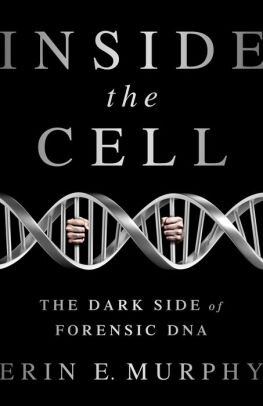Sarah and I opened our office on January 1, 2017, and I don’t think we’ve re-introduced ourselves since then. So I’m taking this opportunity to tell our readers a little bit about who we are.
Katherine Gilmer
“I consider myself an outspoken advocate for my clients and their best interests. I want to help people who are suffering.”
Katherine graduated from the University of Tampa with a degree in criminology. She went to law school knowing that she wanted to practice criminal law after graduation. Katherine graduated from the Paul M. Hebert Law Center at Louisiana State University and was admitted to the practice of law in Louisiana in 2008.
Katherine began her legal career at the Louisiana Second Circuit Court of Appeal in Central Staff where her responsibilities included reviewing criminal appeals filed with the court and drafting recommendations and memoranda to the Court to assist with its rulings.
She began honing her skills at criminal litigation in 2009 when she joined the Shreveport City Attorney’s Office as an assistant city prosecutor. She prosecuted cases ranging from minor traffic offenses to first and second offense domestic abuse battery and driving while intoxicated offenses.
After four years, she left the city attorney’s office to enter private practice with a criminal defense form in Shreveport, where she met her law partner, Sarah Giglio. In 2017, Sarah and Katherine left that practice to open their own.
Sarah Giglio
“We want to stand as a shield between our clients and the legal system. Our desire is to identify and solve any underlying issues that caused them to come into contact with it in the first place. Clients know they can trust us.”
Graduating magna cum laude, from Texas A&M University, Sarah chose law because she wanted to make a positive impact in people’s lives. Earning her Juris Doctor, cum laude, from Southern Methodist University’s Dedman School of Law, Sarah’s dedication to her clients is the driving force behind her practice. A talented legal writer, Sarah served as a Staff Editor and President of Dedman’s International Law Review. As a student member of the Association for Public Interest Law, Sarah earned a stipend to do public interest work after her first year of law school. The following year, as Vice-President of that organization, she took a leading role in the organization’s fundraising efforts to provide future stipends to law students seeking public service internships.
Sarah’s litigation experience began while still in law school with an active role in the clinics offered at SMU, beginning as a student in the Child Advocacy Clinic and later serving as Chief of the clinic. After clerking at a firm specializing in civil litigation and an internship with the Dallas District Attorney’s Office, Sarah found herself drawn to practice of criminal law. Sarah began her career in criminal defense as an associate at Rosenthal & Wadas in McKinney, Texas, where she practiced until she moved to Shreveport. Once in Shreveport, she practiced at Elton Richey & Associates before opening Gilmer & Giglio.
Sarah is licensed to practice law in Louisiana and Texas, and holds memberships in the National College for DUI Defense, the Louisiana Association for Criminal Defense Lawyers, the National Association of Criminal Defense Lawyers, the Shreveport Bar Association where she has served as President of the Women's Section, the Booth-Politz Inn of Court, and the Junior League of Shreveport-Bossier, for which she is currently serving as President. She was selected as a member of the 2016 Young Professionals Initiative 40 Under 40 class.
In honor of the 230th anniversary of the ratification of the Bill of Rights and our final week: The Tenth Amendment.
The powers not delegated to the United States by the Constitution, nor prohibited by it to the States, are reserved to the States respectively, or to the people."
Similarly to the Ninth Amendment, the Tenth Amendment clarifies that any powers not expressly delegated to the United States government are to be exercised by the individual states or the people of the United States.
In honor of the 230th anniversary of the ratification of the Bill of Rights and week 9: the Ninth Amendment.
The enumeration in the Constitution, of certain rights, shall not be construed to deny or disparage others retained by the people."
The second-to-last amendment in the Bill of Rights explicitly establishes that, even if a right is not enumerated in the Constitution, that fact cannot be used to deny those rights to the people.
In honor of the 230th anniversary of the ratification of the Bill of Rights and week 8, another criminal defense attorney favorite: the Eighth Amendment:
Excessive bail shall not be required, nor excessive fines imposed, nor cruel and unusual punishments inflicted.
The Eighth Amendment’s short and sweet language is some of the most complicated and has spawned the most litigation in the Supreme Court. The questions of what is excessive, cruel, or unusual have spawned a great deal of litigation and the Court’s decisions on these matters have evolved over time as our society has evolved and changed. Things that were one thought perfectly fine are now considered cruel and unconscionable. This area of the law will continue to change as our society changes what we think constitutes cruelty.
Further reading:
Kahler v. Kansas, in which the Court answered the question: “May a state abolish the insanity defense without violating the Eighth and Fourteenth Amendments?” Answer: Yes.
Madison v. Alabama, in which the Court addressed the questions: “(1) Does the Eighth Amendment and the Court’s jurisprudence prohibit a state from executing a prisoner whose mental disability leaves him with no memory of the commission of the capital offense? and (2) Does the Eighth Amendment prohibition of cruel and unusual punishment preclude a state from executing a prisoner who suffers from severe cognitive dysfunction such that he cannot remember the crime for which he was convicted or understand the circumstances of his scheduled execution?” The Court found that: “The Eighth Amendment does not prohibit a state from executing a prisoner who cannot remember committing his crime, but it does prohibit executing a prisoner who cannot rationally understand the reasons for his execution, whether that inability is due to psychosis or dementia.”
Timbs v. Indiana, in which the Court addressed the question: “Has the Eighth Amendment’s excessive fines clause been incorporated against the states under the Fourteenth Amendment?” Answer: Yes.
Miller v. Alabama, in which the Court answered the question: “Does the imposition of a life-without-parole sentence on a fourteen-year-old child violate the Eighth and Fourteenth Amendments' prohibition against cruel and unusual punishment?” Answer: Yes.
In honor of the 230th anniversary of the ratification of the Bill of Rights and week 7, the Seventh Amendment:
In Suits at common law, where the value in controversy shall exceed twenty dollars, the right of trial by jury shall be preserved, and no fact tried by a jury, shall be otherwise re-examined in any Court of the United States, than according to the rules of the common law.
This amendment preserves the right to a trial by a jury in civil cases and prohibits judges from overturning the determinations of a jury except as otherwise permitted under the common law.
Gilmer & Giglio would like to wish you a warm and healthy first day of winter!
In honor of the 230th anniversary of the ratification of the Bill of Rights and week 5, we move on the Fifth Amendment:
No person shall be held to answer for a capital, or otherwise infamous crime, unless on a presentment or indictment of a Grand Jury, except in cases arising in the land or naval forces, or in the Militia, when in actual service in time of War or public danger; nor shall any person be subject for the same offence to be twice put in jeopardy of life or limb; nor shall be compelled in any criminal case to be a witness against himself, nor be deprived of life, liberty, or property, without due process of law; nor shall private property be taken for public use, without just compensation.
The Fifth Amendment to the United States Constitution is the source for the prohibition against Double Jeopardy, the requirement that people accused of “infamous” and capital crimes be charged by grand jury indictment, and cannot be compelled to testify against himself nor have his property, life, or liberty taken without due process.
Further reading:
Gamble v. United States, in which the Court addressed the question whether the dual sovereignty exception to the double jeopardy clause was still good law? Answer: “The Court declined to overturn the dual-sovereignty doctrine.”
Colorado v. Spring, in which the Court addressed the question: “Is the suspect’s awareness of the crimes about which he may be questioned relevant to his informed decision to waive his Fifth Amendment rights?” Answer: No.
In honor of the 230th anniversary of the ratification of the Bill of Rights, we are starting to get to the stuff where we make our living: The Fourth Amendment!
The right of the people to be secure in their persons, houses, papers, and effects, against unreasonable searches and seizures, shall not be violated, and no Warrants shall issue, but upon probable cause, supported by Oath or affirmation, and particularly describing the place to be searched, and the persons or things to be seized."
The Fourth Amendment is always rife with litigation in criminal cases. Essentially, this amendment is intended to prohibit the indiscriminate rummaging through of a person’s property by the government. The amendment requires that a search or arrest warrant must be supported by probable cause that a crime was committed and that evidence of that crime will be located at the location to be searched (or that the individual to be arrested committed the crime). The warrant must further particularly describe the place to be searched and the persons or things to be seized, meaning officers cannot come into your home and seize everything you own with a warrant that simply gives them authority to search anyplace you may be found.
Further reading:
Lange v. California, which addressed the question: “Does the exigent circumstances exception to the Fourth Amendment’s warrant requirement apply when police are pursuing a suspect whom they believe committed a misdemeanor?” Answer: “Pursuit of a fleeing misdemeanor suspect does not categorically qualify as an exigent circumstance justifying a warrantless entry into a home.”
Kansas v. Glover, which addressed the question: “For purposes of an investigative stop under the Fourth Amendment, is it reasonable for an officer to suspect that the registered owner of a vehicle is the one driving the vehicle absent any information to the contrary?” Answer: It is reasonable when the officer does not have any contradictory information.
Mitchell v. Wisconsin, which addressed the question: “Does a statute that authorizes a blood draw from an unconscious motorist provide an exception to the Fourth Amendment warrant requirement?” Answer: “When a driver is unconscious and cannot be given a breath test, the exigent-circumstances doctrine generally permits a blood test without a warrant.”
Carpenter v. United States, which addressed the question: “Does the warrantless search and seizure of cell phone records, which include the location and movements of cell phone users, violate the Fourth Amendment?” Answer: Yes.
In honor of the 230th anniversary of the ratification of the Bill of Rights, in our third week, we are talking about Amendment III:
No Soldier shall, in time of peace be quartered in any house, without the consent of the Owner, nor in time of war, but in a manner to be prescribed by law.
I’m going to be hones with you: I read this one in law school, but if you had dared me to remember it until I looked the exact language up a few minutes ago, there’s a solid 75% chance I could not have done it. This language doesn’t come up all that often in our modern world, but it does go to show that the concerns of the founders are sometimes difficult to wrap our heads around and should make us think that the drafters of our Constitution’s ability to imagine the modern world must have been nearly impossible, as well.
Photo by Jakob Owens on Unsplash
In honor of the 230th anniversary of the ratification of the Bill of Rights, we move on to our second week: Amendment II:
A well regulated Militia, being necessary to the security of a free State, the right of the people to keep and bear Arms, shall not be infringed.
As we discussed last week, despite the plain language of this amendment, both the States and Federal government have placed a multitude of restrictions on the possession of firearms, which have been upheld b the Supreme Court. Individuals with certain convictions (even some misdemeanors) are prohibited (under Federal law) from possessing a firearm (specifically: most offenses involving domestic violence).
Further reading:
Caetano v. Massachusetts, in which the Court addressed the question: “Does the Second Amendment protect the right to possess a stun gun for self-defense?” Answer: “Although stun guns are unusual in nature and were not common during the enactment of the Second Amendment, they are included in the Second Amendment’s protections.
Voisine v. United States, in which the Court addressed the question: “Does a misdemeanor crime that requires only a showing of recklessness qualify as a misdemeanor crime of domestic violence under federal statutes 18 U.S.C. §§ 921(a)(33)(A) and 922(g)(9)?” Answer: Yes.
See you next week for the Third Amendment!
After the Constitution of the United States was drafted, it became clear to many of the “founders” that additional rights and restrictions should be explicitly provided to and placed upon the government. The Bill of Rights was drafted in 1789 and finally ratified on December 15, 1791. In honor of the 230th anniversary of the Bill of Rights, we will be spending the following 10(ish) weeks talking about each of the first 10 amendments. This week: Amendment 1:
Congress shall make no law respecting an establishment of religion, or prohibiting the free exercise thereof; or abridging the freedom of speech, or of the press; or the right of the people peaceably to assemble, and to petition the Government for a redress of grievances."
The First Amendment to the United States Constitution establishes the right to free speech, a free press, peaceable assembly and the right to petition the Government. The First Amendment protects people in the United States from the government passing laws restricting their rights to exercise their own religion freely, from speaking freely, from assembling (peacefully) and freely. The Supreme Court has regularly found, despite this language, that reasonable time and place restrictions can be placed on speech. The most common example: laws can prohibit a person from shouting “fire!” in a crowded movie theater. Another example: the local government can require permits for protests or other public gatherings.
The rights contained in the Bill of Rights are foundational. They are the seeds from which so much of our law has sprouted. But they are also subject to interpretation. And restriction. And the plain language is fairly often not the end-all-be-all of what they mean.
Further Reading:
Carson v. Makin, in which the Court addressed the question: “Does a state law prohibiting students participating in an otherwise generally available student-aid program from choosing to use their aid to attend schools that provide religious, or “sectarian,” instruction violate the Religion Clauses or Equal Protection Clause of the U.S. Constitution?” The Court has not ruled on this case at the time of this writing.
Snyder v. Phelps, in which the Court addressed the question: “Does the First Amendment protect protesters at a funeral from liability for intentionally inflicting emotional distress on the family of the deceased?” Answer: Yes.
Morse v. Frederick, in which the Court addressed the question: “Does the First Amendment allow public schools to prohibit students from displaying messages promoting the use of illegal drugs at school-supervised events? Answer: Yes. (Note: the student’s sign had the nonsensical phrase, “Bong Hits 4 Jesus” written on it.)
The blog linked to above is oyez.org and it contains a great searchable database of Supreme Court cases that is easy to read.
See you next week for the Second Amendment!
Both Sarah and I love to read, so when I saw there was a Read Across America day, I got very excited and knew I needed to share it. First, some history: Read Across America day began in 1997 as an initiative to encourage children to read. It is held on the nearest school day to March 2 every year because Thedor Geisel, or Dr. Suess, was born on March 2, 1904. Dr. Suess was a prolific author of children’s books that are beloved to this day.
In honor of Read Across America Day, we’ve got some recommendations for books for you:
I know, I know, I didn’t have to tell you to read this one. But it is THE quintessential book about the law and justice in America. I don’t know very many lawyers who haven’t read this book. And an aside, when students sign up to take the bar exam in Louisiana, they have to pick a pseudonym so the graders can’t identify whose exam they are reading and, well, cheat. The examiners advise students not to choose the name “Atticus Finch” because SO MANY people have done it in the past that they run the risk of not being able to identify their own results.
Continuing our theme of books made into movies, you could pick any of a very long list of Grisham novels, but this was his first, and was inspired by To Kill a Mockingbird. Another book that attempts to grapple with the issues of race and justice in America that we have yet to solve.
As someone who uses the phrase “Kafkaesque” much more often than is really justifiable, I couldn’t resist the opportunity to include this book. This is the story of a man struggling with the bureaucracies of a court system that will not tell him what crime he has been accused of nor will it allow him to defend himself. It is absurd and frustrating but worth a read.
This is a non-fiction book that gives a good background in the development of DNA forensics and then delves deeply into the issues with said forensic evidence. For anyone with an interest in DNA, science-based evidence, or how exactly courts began to accept DNA evidence, this book is fantastic!
We hope you found something here worth picking up on this National Read Across America day! Happy reading!
As always, if you or someone you know is accused of a crime, call us at (318) 459-9111 to schedule a consultation.
My favorite of the new laws passed by the Louisiana legislature in 2020 is the law regarding Daylight Savings Time.
Effective August 1, 2020, if the United States Congress amends 15 U.S.C. 260(a) to authorize states to observe daylight saving time year-round, Louisiana will, by the enactment of La. R.S. 1:50, adopt daylight saving time as the year-round standard of time for the entire state.
So far, we’re still subject to springing forward and falling back, but if the US Congress acts to change that, Louisiana will spring forward and stay there!


































